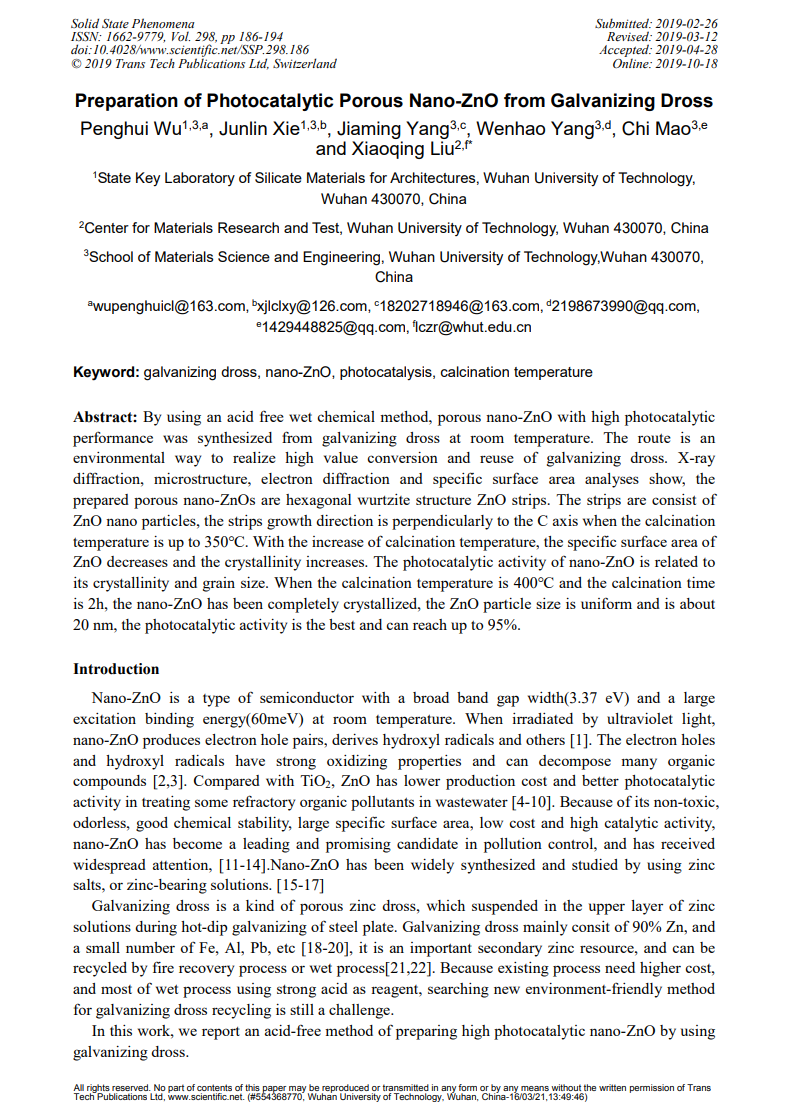By using an acid free wet chemical method, porous nano-ZnO with high photocatalytic performance was synthesized from galvanizing dross at room temperature. The route is an environmental way to realize high value conversion and reuse of galvanizing dross. X-ray diffraction, microstructure, electron diffraction and specific surface area analyses show, the prepared porous nano-ZnOs are hexagonal wurtzite structure ZnO strips. The strips are consist of ZnO nanoparticles, the strips growth direction is perpendicularly to the C axis when the calcination temperature is up to 350°C. With the increase of calcination temperature, the specific surface area of ZnO decreases and the crystallinity increases. The photocatalytic activity of nano-ZnO is related to its crystallinity and grain size. When the calcination temperature is 400°C and the calcination time is 2h, the nano-ZnO has been completely crystallized, the ZnO particle size is uniform and is about 20 nm, the photocatalytic activity is the best and can reach up to 95%.
